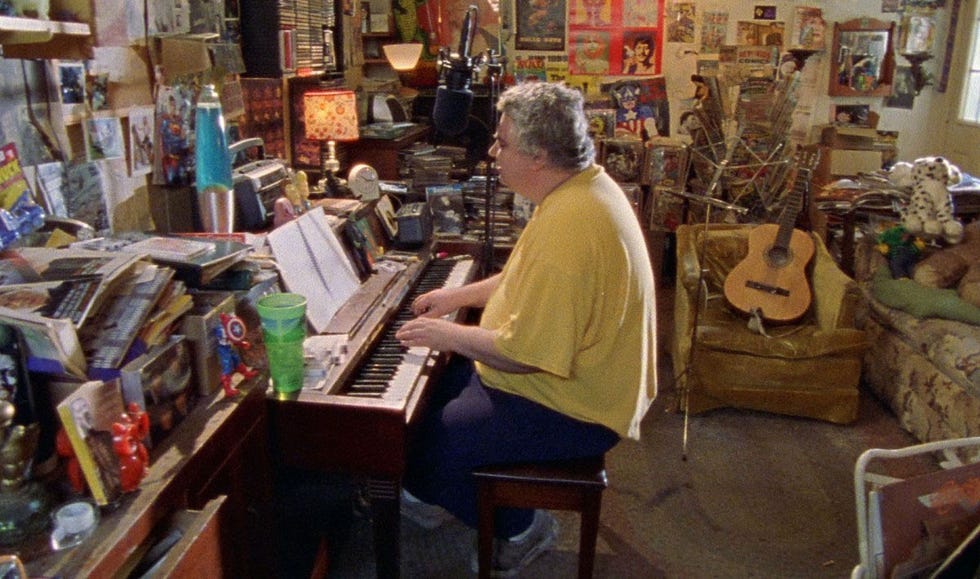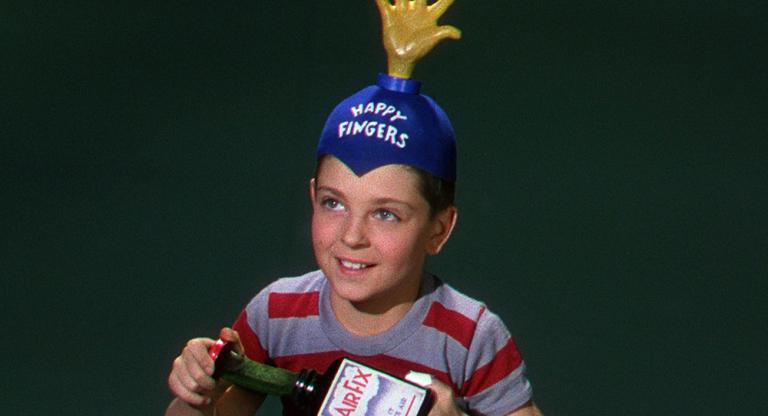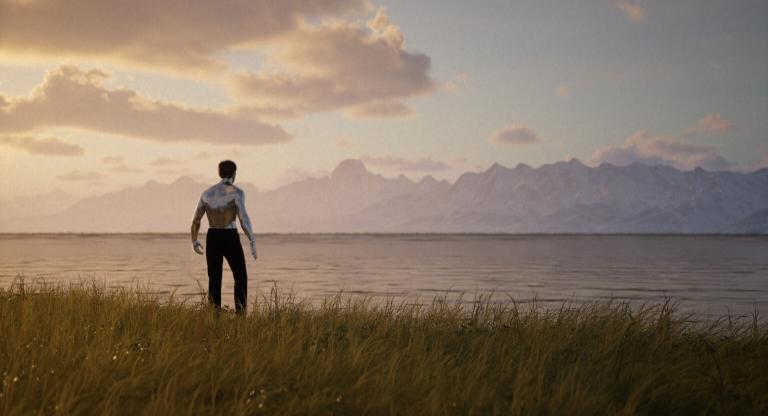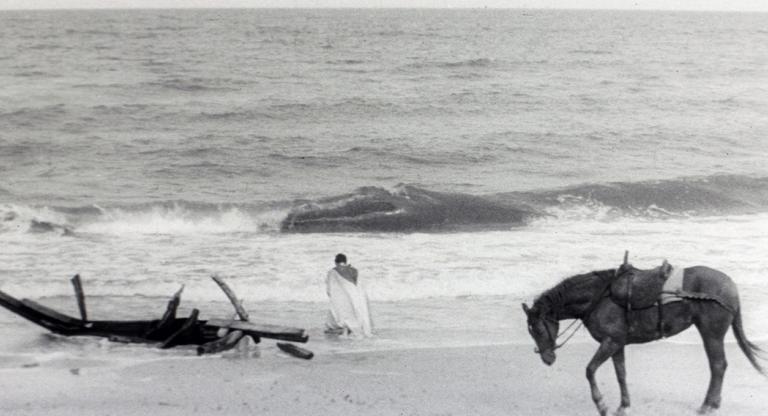Daniel Johnston, like many of the best singer-songwriters, lived a life that remains masked in myth. Much of this has to do with when and where he first broke into the independent music scene: Austin, between the late ‘80s and early ‘90s. And, more stressed in biographical accounts, his life as a manic-depressive. His career has been colored in sensationalism over the years, reflecting his undeniably mercurial character and actions. Yet, the documentarian Jeff Feurzeig, in one of his earliest films, cuts across myth in his delicate and insightful documentary about the troubled musician, The Devil and Daniel Johnston (2005).
Feurzeig’s film features a healthy mix of interviews with Johnston’s relatives and peers, archival material of his performances, excerpts from films shot by Johnston, and footage of the artist around when the film was made. Rather than lean into myth, or tend toward hagiography, Feurzeig relates Johnston’s tortuous ups-and-downs in a straightforward manner. While the approach seems obvious, it’s striking within a field of documentary filmmaking that often renders artists distant by buying into their myths without question, or reduces them to archetypes through pure exaltation. The Devil and Daniel Johnston, perhaps taking a cue from its focal figure, is humble and sincere.
Apart from reflecting Johnston’s character as an artist, Feurzeig’s heartfelt approach to filmmaking in this documentary is indicative of his love of Johnston, and Johnston’s trust toward him. By tackling the twists and turns that made Johnston such a legend in the world of indie music in such a forthright manner, Feurzeig preserves the shock that each swerve in his story had on the musician himself. His further inclusion of Johnston’s lyrics and drawings in the film emphasizes this, lending each momentous occasion in his life the appropriate artistic weight it deserves.
When Feurzeig arrives at the tragic plane crash that has long been emblematic of Johnston’s manic episodes, his decision to include the artist’s drawings of the event in his retelling produces a totally human rendering of what went down. This moment of fear and confusion for Johnston comes across as just that, a troubled memory, and not as an overblown episode that overshadows everything that came before it and after it. Feurzeig knows that Johnston’s art speaks for itself, and when he can, he turns to it, knowing that its vulnerability has much more to say than anything a filmmaker could ever conceive of doing to translate his life into cinema. His chronological, sincere approach to Johnston’s life story, combining anecdotes from friends and family alongside the artist’s own artistic reflections, creates a portrait of an artist that confirms that every life, no matter how well-researched or over-shared, will always maintain its mysteries, and for better or worse, remain misunderstood.
The Devil and Daniel Johnston screens on Saturday, October 4, at the Roxie on 35mm. Director Jeff Feuerzeig and producer Henry S. Rosenthal will be in attendance for a Q&A.



